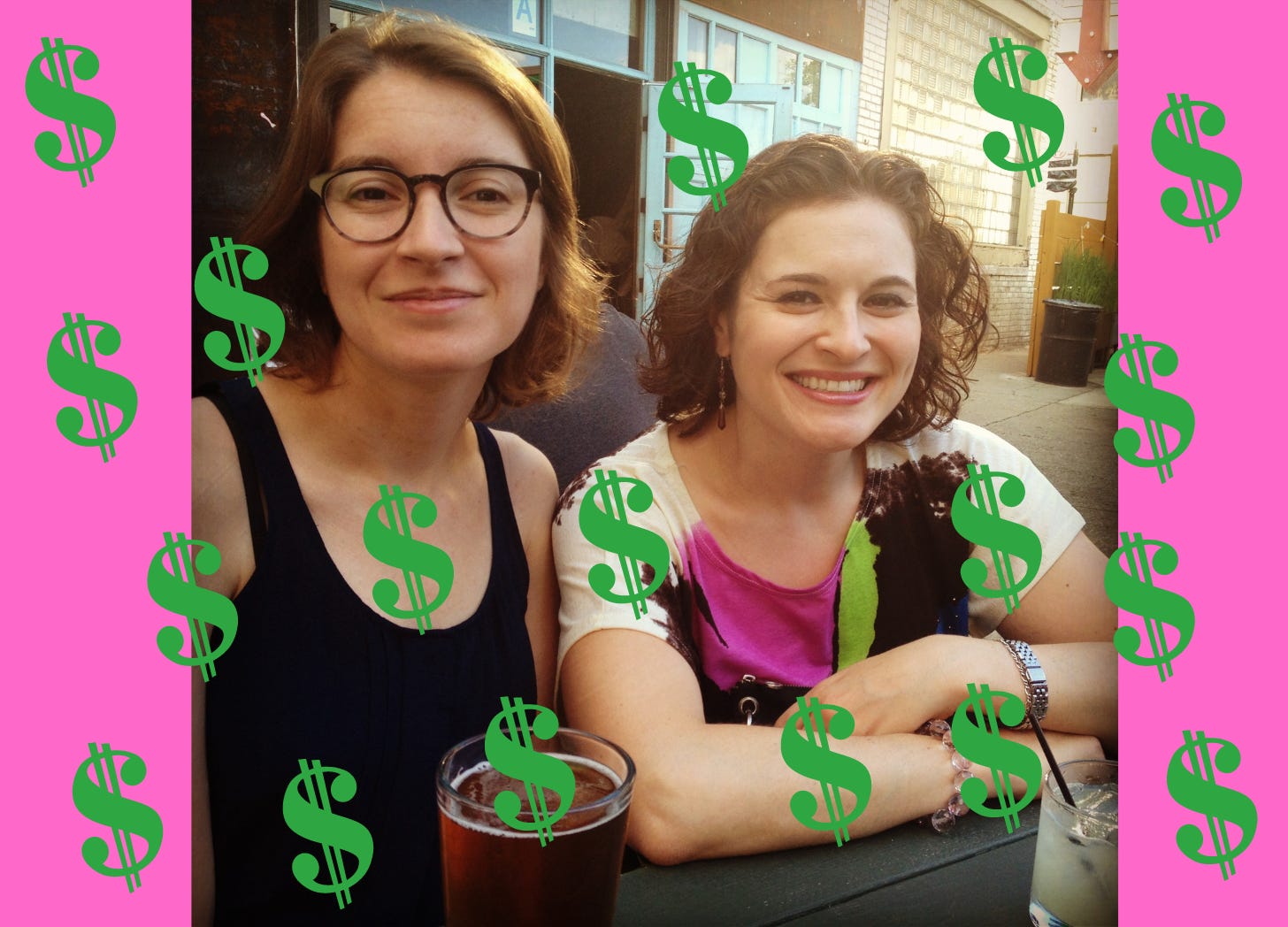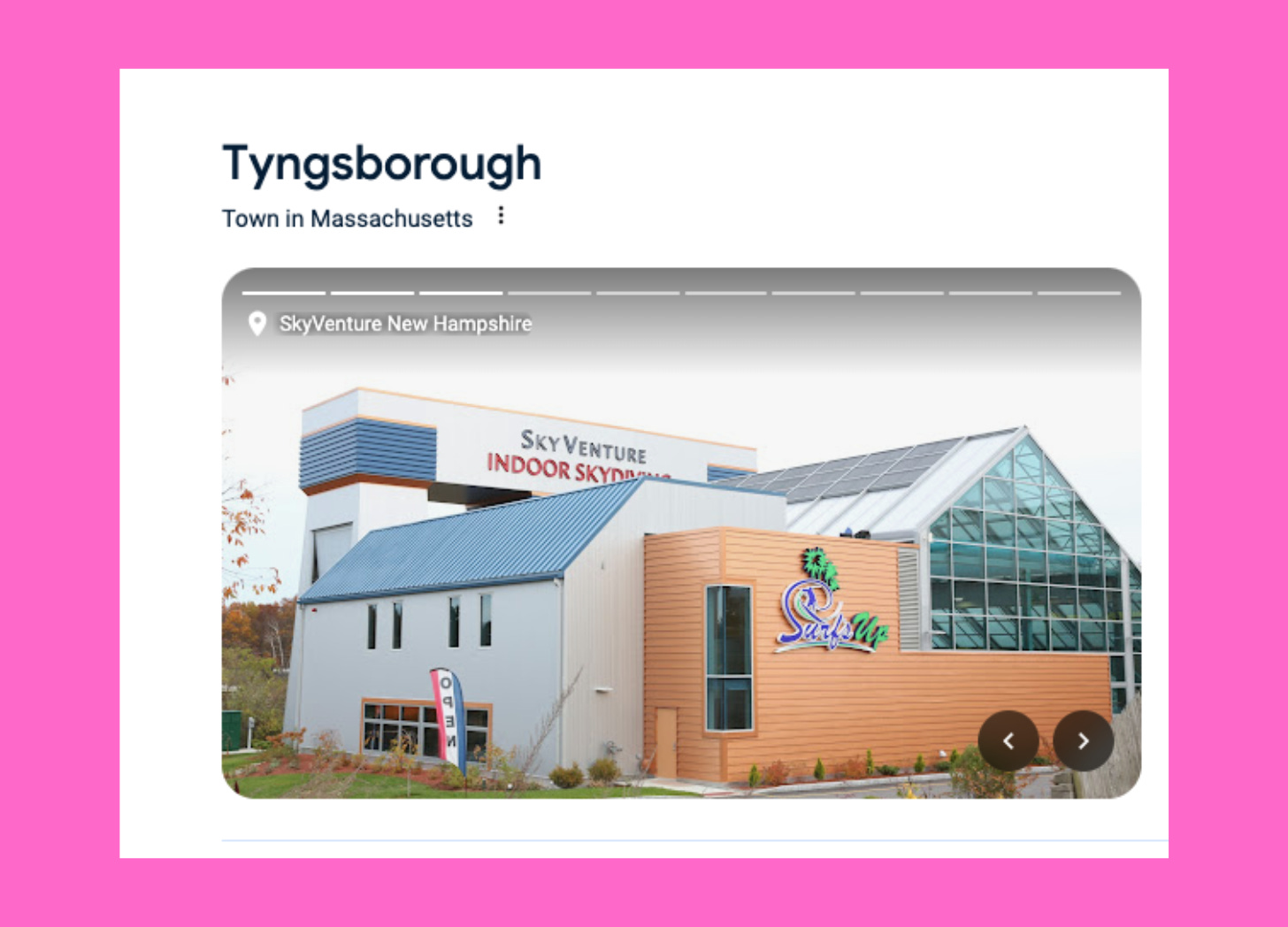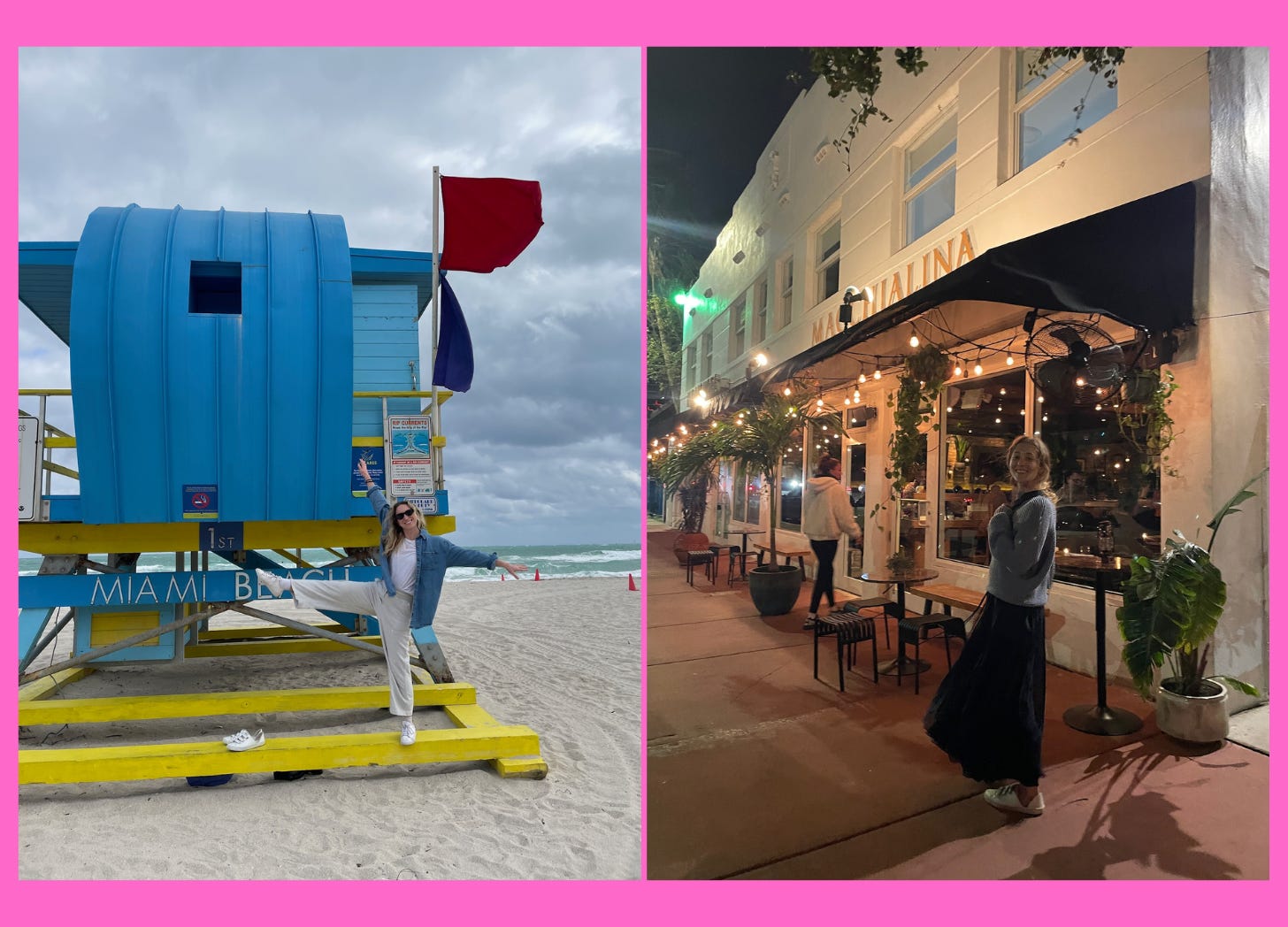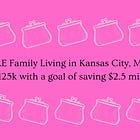Welcome to The Purse, a newsletter about money and women and motherhood and careers and all that good stuff!

We’ve welcomed so many new subscribers to The Purse this month, and it’s just been amazing! I’m this close to hitting the 10,000 mark! If you like this newsletter, would you consider forwarding to a friend?
I’ve been wanting to write about friendship and money since before I even launched The Purse. After all, it was the many, many money conversations I’ve had with friends that in part inspired this newsletter.
But friends and money are a complicated combination. As with any kind of personal relationship, money can make things super weird! It can bring up bad feelings of jealousy or resentment. You might find yourself trying to keep up with your better-paid friends and spending money you simply don’t have. Or, on the flip side, you might find yourself trying to hide your success to avoid making your friends feel bad.
And then there’s the mystery around friends and how they make their money. I’ve had so many gossipy conversations over the years wondering how so-and-so can actually afford their lifestyle. It doesn’t take much Googling to track down how much someone paid for their home. I don’t necessarily think this kind of curiosity comes from a bad place—though maybe I’m trying to justify it! We’re all just trying to figure out how people make it work.
Friends can also have a big impact on your finances—sometimes for worse. A recent survey from Axios and The Harris Poll found that 43% of Gen Z and millennials said they find themselves overspending to keep up with their more well-off friends. Honestly, I’m surprised it’ s not higher, but maybe people just don’t want to admit—or can’t see—how their friends impact their spending.
Money tensions between friends is a trope that pops up in movies and TV shows from time to time. One I think about a lot is the Friends episode where Rachel, Phoebe, and Joey are stressed about the cost of eating out at a fancy restaurant to celebrate Monica’s promotion and try their best to order the least expensive items on the menu. The three of them balk when Ross suggests they all split the bill evenly and pay for Monica’s dinner.
I have such vivid memories of these kinds of group dinners in my 20s. Inevitably they took place at some overpriced small-plates restaurant that were so popular in Manhattan in the early 2000s. It would be expensive, and we would always leave hungry. And it bugged me that the birthday girl would be the one who planned the party, picked the restaurant, and then expected her guests to pay for their dinner and hers. It never felt worth it.
When I first moved to NYC in my very early 20s, though, I didn’t have many friends, and I worried that if I turned down the very few social invites I received, I would be even lonelier. I also didn’t yet have the confidence to simply tell the friend I couldn’t afford her birthday dinner. It felt too awkward and weird.
Thankfully, I haven’t felt that anxiety in a long time—for all kinds of different reasons, but maybe the biggest one is my relationship with Ken. The man has practiced loud budgeting since way before it was a TikTok trend. He really doesn’t like to spend money on dining out, and so we very rarely go out to dinner with friends.
No doubt, our disinterest in finer culinary experiences has influenced who we are friends with. It’s interesting to really think about how and why you connect with someone and then become friends. I met my first close NYC friend, Jen, at an Ed2010 networking event circa 2005, and we had our first friend date at a long-shuttered coffee shop in Park Slope. We lived pretty close to each other, which made the friendship easy to settle into—it also helped that she’s hilarious and so fun to hang out with. And for the next decade, we saw each other all the time. We’d sneak out of work for irresponsibly long lunches or stay out too late drinking margaritas. And we threw so many house parties with our tight-knit group of friends—oh they were so much fun!—and we spent many Sundays hanging out in Jen’s tiny Brooklyn backyard, grilling and drinking beers and talking about who knows what.
This was before Instagram and influencers, and I know I sound like an old fogie, but I really do think it was a simpler time. I didn’t scroll Instagram and see my peers jetting off to Europe for Taylor Swift concerts, and no one I knew went on destination bachelorette trips to Palm Springs. Sure, there were definitely people in New York City living much more glamorous lives, but I wasn’t really exposed to them, and I don’t really have any memories of wanting anything fancier than the life I had. We had fun, and we did it cheaply. And that allowed me to invest my money in other things, like saving for the apartment Ken and I bought in 2009.
I also think one of the reasons Jen and I were such good friends in our 20s and early 30s is that we had pretty similar attitudes about money. Though in texting her about this newsletter, she did point out that I like to spend money on nice clothes and she likes to spend money on nice food and drink. But we didn’t seem to struggle to find middle ground. If she had been obsessed with ordering bottle service at the clurb or spending big bucks on fancy workout classes, we probably wouldn’t have gelled the way we did.
Being young and sort of broke and having friends in similar financial situations also makes it pretty easy to avoid most awkward money conversations. But as you get older, things inevitably change.
I recently rewatched the 2006 Nicole Holofcener movie Friends with Money. It’s a slice-of-life film about four middle aged friends navigating life in L.A. Money is part of the story, but so are love, marriage, kids, home renovations, and $10,000-a-table galas. Three of the women are wealthy and arguably successful—Jane (Frances McDormand), Christine (Catherine Keener), and Franny (Joan Cusak). And then there’s Olivia (Jennifer Aniston), who is adrift after quitting her teaching job and is eking out a living as a housekeeper, smoking a lot of pot, and making some bad decisions about men.
It’s not quite clear how these four women became friends in the first place, but toward the end of the movie Franny, who’s the wealthiest of the bunch, wonders aloud to her husband if she would still be friends with Olivia had they met today. “It’s unlikely,” he replies.
Don’t worry—this newsletter doesn’t involve me and Jen eventually having a falling-out over money. We got older and had babies, and in 2018, she broke my heart and moved back to her home state to be closer to her parents. We’re still friends (though she always fusses at me for not texting her enough!), and I think we would be friends if we were to meet for the first time today—our lives haven’t dramatically diverged like Olivia and Franny’s in Friends with Money.
Olivia and Franny’s different financial situations definitely impact their friendship—but despite the awkwardness (and it is awkward), they manage to talk about it. And as uncomfortable as it might make you (and me, LOL), openness and honesty about everything—including money—is essential to a successful friendship. (And I’m not talking about acquaintances here—I mean lifelong bosom buddies.)
and write , one of my favorite newsletters, and earlier this year, they launched the Friendship Training Program to help women forge strong and lasting friendships in adulthood. I loved the program because it was just so honest and helpful, and while neither claims to be a friendship expert (though I would beg to disagree 🙂), I knew I wanted to talk to them about the topic of friends and money. Making friends as an adult is hard, and it takes more work than most people are willing to admit—and money can make it even more complicated.Between social media and pop culture (see How I Met Your Mother and Sex and the City and so many other shows), it’s hard not to feel like everyone has these fantastic friend groups that formed in college, and that they still hang out nearly every day as adults. Or, if they don’t because they now live in different cities, they take amazing group vacations that have the vibe of The Big Chill without the funeral scene. (Yes, I want to dance to The Temptations in the kitchen with my best friends Kevin Kline and Jeff Goldblum.) Maybe some of you readers are lucky enough to have had that experience, but it hasn’t worked that way for me.
Aliza, Aja, and I caught up on Zoom in late June so I could get their take on how to navigate weird money stuff with friends. I’d been thinking about that Friends episode and Franny and Olivia in Friends with Money and also marveling at how many young women I follow on Instagram always seem to be heading off to another destination bachelorette trip or group 30th birthday party vacation. I always wonder how they can afford both the expense and the time. Maybe they’re making a lot more than I did at 30? In which case, good for them! Or maybe they’re taking on a lot of credit card debt? In which case, ugh! That sucks!
As friends and business partners, Aja and Aliza have found that they need to be pretty open with each other about money. But like many women whose friendships have evolved over a long time, they’re also at slightly different life phases. Aliza has a toddler, she lost her job earlier this year (she’s since gotten a new one), and her husband is in graduate school. Aja is engaged, and she and her fiance both have good jobs in tech. Naturally, they have different priorities when it comes to spending their disposable income. And like everyone, they have different price points they feel comfortable with spending.
This became very apparent to them this winter, when the two decided to plan a Platonic Love retreat. Aja first proposed a spa in Providence that would run them each roughly $300 a night, and then the spa treatments were going to be another $250+. Aliza replied via text asking if they could find something more budget-friendly.
“I remember getting that text and being like, ‘Oh, have I messed up?’ Normally, I’m pretty conscious, and I felt a little bad,” says Aja.
Aliza found a more affordable spot in Tyngsborough, Mass., and Aja agreed to the new plans. “I never sat down and thought, ‘I want to go to Tyngsborough,’ Aja says with a laugh during our call. “But cool, cool, I’m in.”

Then 10 days before the retreat, Aliza suggested they scrap Tyngsborough and go to Miami instead. Flights were cheap on Spirit, and Tyngsborough was looking a little bleak in January. So they changed their plans and headed for sunny Florida.

Here’s the thing I love about this story—Aja and Aliza were able to work through an awkward financial conversation and find a common ground. The Miami trip was more expensive than the Tyngsborough outing, sure, but both of them felt really good about the investment. For them, the money was thoughtfully spent. But it wasn’t necessarily easy for them to get to that place—they both had to put themselves out there to navigate a difficult conversation.
Much has been made about the loneliness epidemic in this country. We’re also living during a time when we seem to prioritize convenience and comfort over all else. But the good things in life take a lot of hard work and some amount of sacrifice: careers, marriage, raising kids, and having friends. None of these things are easy—but the payoff, oh man, it’s huge. My life is so much fuller because of my friends.
Last week, I met up with my friend Mari for dinner at a little wine bar in Brooklyn. We’re friends from our Refinery29 days, and in my opinion (and I think she would agree), we don’t see each other nearly enough. But also, it’s not entirely surprising, because we both have kids and careers and husbands with careers, and we don’t live in the same neighborhood. Honestly, it’s taken some heroic efforts to keep the friendship alive, LOL.
We met at a little bar and spent hours just chatting over wine and cheese—honestly my idea of heaven. It wasn’t easy to find the time in my schedule for the friend date, and it wasn’t a cheap evening for me on my limited budget. And yet when I left Mari on Tuesday after hours of catching up, all I could think was: Tonight was a really good investment. That was money very well spent.
I feel like I just scratched the surface on this topic, and it deserves more! But I want to hear your stories. Feel free to share in this Google form.
Random Extras
Speaking of
, Aja and Aliza invited me to be a guest contributor in this week’s edition of Links We Send Our Friends.As I said in this newsletter, I’m not the biggest foodie, so maybe it’s surprising to hear that I have a soft spot for food writing. I really enjoyed reading Pete Wells’s farewell article about his decision to leave the role as food critic at The New York Times. The end of an era!
Just a reminder about this month’s paid reader giveaway. I’m teaming up with my friend Alison Morris Roslyn, founder of Francey Not Fancy. We’re giving away a Summer in a Bottle prize pack, which includes all four wines in Wölffer Estate’s Summer in a Bottle lineup: Summer in a Bottle White, Summer in a Bottle Long Island Sauvignon Blanc 2023, Summer in a Bottle Long Island Rosé, and Summer in a Bottle Côtes de Provence Rosé. Upgrade to paid and sign up for Francey Not Fancy's free newsletter, One Thing About Wine, to win.1
More on The Purse
The sweepstakes is limited to readers within the U.S. It closes at 11:59 p.m. ET on July 31, 2024. To enter without upgrading to a paid subscription, please reply to this email by 11:59 p.m. ET on July 31, 2024, that you would like to be entered in the sweepstakes. If there’s any further questions, simply respond to this email and I will do my best to answer them.








I really enjoyed reading this. I too grew up waay before FB and Instagram was a thing -- was perfectly happy living and enjoying my life. I've lived in NYC for decades, never made a lot of money - but I never felt poor like I often do now. Also, now I have some friends who are lovely AND make a ton of money. Being in my 50's I do have the confidence to tell people, "I just can't afford that show, that restaurant, the weekend getaway that costs 2 weeks of my salary and maybe a day of theirs," but it doesn't feel great. I can't help mentioning how the cost of everything has sky rocketed too. Even going to a movie and a diner afterwards has become a production and so expensive.
Paying for birthday dinners that are ridiculously extravagant simply irks me. If I want to celebrate your birthday by cooking you dinner, or taking you to dinner is one thing - but forcefully having to pay for the way you want to be celebrated -- sorry - no can do.
I know I sound old and curmudgeon-y -- I'm really not. But then maybe I am -- a little. I could go on but I won't.
Great read though - thank you so much for sharing.
My friends and I have instituted a “you pick-you pay” for annual birthday events and meals. It removes the onus to pay on friends who didn’t pick the place or activity, lets the birthday girl decide what the activities and events will be and the budget. As our individual circumstances have shifted it has let us do a range of things that is always comfortable for each one of us and always within our means. Fantastic. Would highly recommend at any age!